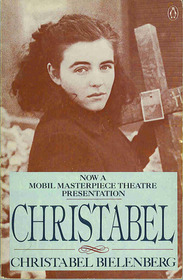Helpful Score: 3
Christine Bielenberg is an Anglo-Irish woman married to a German. This book follows her life as the wife of a German from just before the outbreak of the second world war to its end. Having missed the opportunity to escape to England she manages to avoid internment. She and her family remain in Berlin for as long as possible but eventually move to the safer rural area of the Black Forest. The story includes arrests, plots, rescues and living in hiding.
Throughout the book Bielenberg blends domestic detail with international events. On the one hand she writes about the problems she has when her hens invade the neighbours garden, and on the other hand she describes her husbands involvement in the plot to kill Hitler. What makes it such a good read is that Beilenburg is an ordinary person. She is courageous and is forced to takes great risks and yet she is pragmatic and most of her energy is taken up with the daily task of keeping her children fed and safe. At times she describes the most extraordinary events as if they were perfectly normal. On describing her visit to a friend who had been bombed she writes: "This is the hall of course, you recognize it, that's the sitting room with windows and here's my bedroom without windows, and of you go through that door you go straight into the cellar." Her friend, meanwhile, is dressed in a long fur coat and army boots.
Bielenberg and her husband were on the edge of a plot to kill Hitler and as a result her husband was arrested and held by the SS. Bielenberg attempts to charm one of the officers into believing that her husband's involvement was peripheral and undertakes a long and hazardous journey to Berlin where she is interviewed by the SS and risks being held herself. Throughout the book her desire to actively oppose Hitler's regime fights with her instinct to stay out of the limelight and keep her family safe. She manages to convey her intelligence and ability to read and respond to individuals without once sounding pompous or conceited. She is essentially an ordinary women whose strength of character and resourcefulness are bought out by extraordinary circumstances.
Throughout the book Bielenberg blends domestic detail with international events. On the one hand she writes about the problems she has when her hens invade the neighbours garden, and on the other hand she describes her husbands involvement in the plot to kill Hitler. What makes it such a good read is that Beilenburg is an ordinary person. She is courageous and is forced to takes great risks and yet she is pragmatic and most of her energy is taken up with the daily task of keeping her children fed and safe. At times she describes the most extraordinary events as if they were perfectly normal. On describing her visit to a friend who had been bombed she writes: "This is the hall of course, you recognize it, that's the sitting room with windows and here's my bedroom without windows, and of you go through that door you go straight into the cellar." Her friend, meanwhile, is dressed in a long fur coat and army boots.
Bielenberg and her husband were on the edge of a plot to kill Hitler and as a result her husband was arrested and held by the SS. Bielenberg attempts to charm one of the officers into believing that her husband's involvement was peripheral and undertakes a long and hazardous journey to Berlin where she is interviewed by the SS and risks being held herself. Throughout the book her desire to actively oppose Hitler's regime fights with her instinct to stay out of the limelight and keep her family safe. She manages to convey her intelligence and ability to read and respond to individuals without once sounding pompous or conceited. She is essentially an ordinary women whose strength of character and resourcefulness are bought out by extraordinary circumstances.





